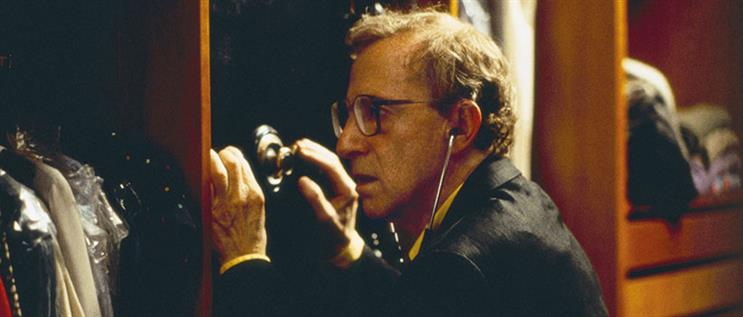There’s a funny line in the 1999 film Small Time Crooks. It’s delivered by Woody Allen’s character, an uneducated criminal called Ray. Talking of his desire to turn his life around, he moans that his lifelong ambition is to "learn how to spell Connecticut".
The joke is that we humans often profess a burning desire to change but complain that it’s impossible, when really the required action is relatively straightforward. (If Ray really wanted to spell Connecticut, he could simply pick up any dictionary.)
It strikes me that this mindset is quite prevalent in our world. From collaboration to diversity, breaking down silos to disrupting industries, we loudly proclaim the need to change our ways but constantly complain about how difficult it is – and, as a result, do nothing.
For a classic example of this dynamic in action, just look at our approach to effectiveness. Demonstrating a return on investment is (rightly) one of our collective lifelong ambitions. We’ve professed a desire to nail it for many decades. We know that, with marketing budgets under pressure these days, it’s more important than ever. And yet, all too often, we throw up our hands and protest that proving a causal link between communications (or, indeed, other marketing activities) and commercial results is impossible.
Now, I’m not pretending that effectiveness is always a precise science. Nor am I unsympathetic to arguments that it has become more complex in an era of fragmented media, complicated customer journeys, blurred category definitions and fast-moving cultural currents. But I do think that hiding behind Lord Lever’s ancient dictum ("I know 50% of my advertising budget is working. I just don’t know which 50%") is a bit feeble in this day and age.
The truth is that there is now a wealth of evidence on what constitutes successful marketing. Anyone truly interested in best practice could simply reach for a copy of Byron Sharp’s seminal work How Brands Grow or delve into the IPA Databank (the biggest collection of advertising effectiveness case studies in the world).
Better still, they could examine their own data (which most companies have more of than ever before but fail to use properly).
There they would find a fairly clear blueprint for success: aim for penetration rather than loyalty; be distinctive; focus on developing an emotional appeal; be consistent; ensure the product experience lives up to the promise. And so on. Likewise, they would discover some very clear guidance on creating an effectiveness culture within their organisation: make it the responsibility of the whole company, not just a department; consider it all the way through the process, not just at the end; set clear objectives at the start and stick to them when it comes to evaluation; agree appropriate time-frames that balance short-term and longer-term effects.
Focus on the basics
Of course, there are all sorts of factors – internal and external – that can conspire to make this more difficult than I’m making out. But I would argue that, while some marketing mistakes are the result of complex forces beyond our control, the majority are due to fairly basic errors that should be easier to avoid. Maybe we should spend more time focusing on these fundamentals than the more sophisticated stuff?
Put another way: change is often difficult. But we shouldn’t excuse inaction by pretending that it’s always rocket science. Sometimes, we just need to learn how to spell Connecticut.
Effectiveness gets serious
The deadline for the IPA Effectiveness Awards passed a month ago, meaning that some exhausted agency and client teams might not want to crunch any more data for a while. But, ironically, the biggest lesson from our equivalent of the Oscars is that effectiveness should be an everyday affair rather than a biennial process. The best papers come from a year-round dedication to accountability, baked into the corporate culture, rather than a last-minute scramble for jury-pleasing numbers.
As a judge, I’m always refreshed by the progress that has been made – and continues to be made – in this field. Perusing this year’s entries, I’m especially encouraged that some of the traditional barriers to proving effectiveness are being demolished.
For instance, there are papers that clearly demonstrate how to isolate the effect of social media. There are case studies that grapple with the complexities of international marketing. There are entries that concern small-budget campaigns, brand extensions and behavioural-change initiatives.
All of these involve measurement difficulties but the authors show that the obstacles can be overcome. In six months’ time, the winning papers will be published, meaning there will be even less scope to make excuses. In the meantime, why wait for a medal to get serious about effectiveness?
Andy Nairn is a founding partner of Lucky Generals.



